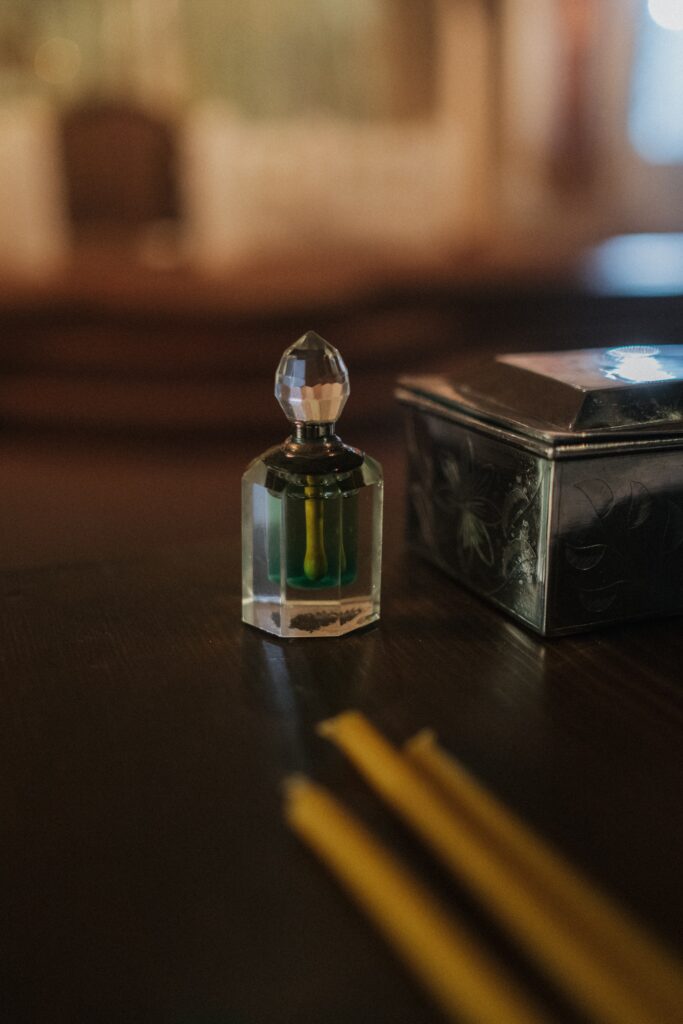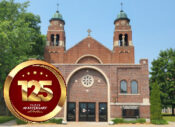Anointing of the Sick
A particular gift of the Holy Spirit.
The sacrament of Anointing of the Sick is given to those who are seriously ill by anointing them on the forehead and hands with duly blessed oil—pressed from olives or from other plants—saying, only once:
“Through this holy anointing may the Lord in his love and mercy help you with the grace of the Holy Spirit. May the Lord who frees you from sin save you and raise you up.”
(Catechism of the Catholic Church, 1513)
The sacrament of Anointing of the Sick, formerly known as Last Rites or Extreme Unction, extends the care that Jesus showed for the bodily and spiritual welfare of the sick. It may be celebrated at any point in the life of an individual who seeks strength in time of physical or mental illness, facing surgery or approaching death. The sacrament conveys several graces and imparts gifts of strengthening in the Holy Spirit against anxiety, discouragement, temptation, and conveys peace and fortitude.
This sacrament has a powerful effect upon the sick person (CCC 1520-1523):
1520 A particular gift of the Holy Spirit. The first grace of this sacrament is one of strengthening, peace and courage to overcome the difficulties that go with the condition of serious illness or the frailty of old age. This grace is a gift of the Holy Spirit, who renews trust and faith in God and strengthens against the temptations of the evil one, the temptation to discouragement and anguish in the face of death.135 This assistance from the Lord by the power of his Spirit is meant to lead the sick person to healing of the soul, but also of the body if such is God’s will.136 Furthermore, “if he has committed sins, he will be forgiven.”137
1521 Union with the passion of Christ. By the grace of this sacrament the sick person receives the strength and the gift of uniting himself more closely to Christ’s Passion: in a certain way he is consecrated to bear fruit by configuration to the Savior’s redemptive Passion. Suffering, a consequence of original sin, acquires a new meaning; it becomes a participation in the saving work of Jesus.
1522 An ecclesial grace. The sick who receive this sacrament, “by freely uniting themselves to the passion and death of Christ,” “contribute to the good of the People of God.”138 By celebrating this sacrament the Church, in the communion of saints, intercedes for the benefit of the sick person, and he, for his part, through the grace of this sacrament, contributes to the sanctification of the Church and to the good of all men for whom the Church suffers and offers herself through Christ to God the Father.
1523 A preparation for the final journey. If the sacrament of anointing of the sick is given to all who suffer from serious illness and infirmity, even more rightly is it given to those at the point of departing this life; so it is also called sacramentum exeuntium (the sacrament of those departing).139 The Anointing of the Sick completes our conformity to the death and Resurrection of Christ, just as Baptism began it. It completes the holy anointings that mark the whole Christian life: that of Baptism which sealed the new life in us, and that of Confirmation which strengthened us for the combat of this life. This last anointing fortifies the end of our earthly life like a solid rampart for the final struggles before entering the Father’s house.140
The Sacrament of Anointing is meant for those Christians whose health is seriously impaired by sickness and old age. Through the anointing the Church supports the sick in their struggle against illness, continuing Christ’s work of healing.
If possible, the sacrament should be requested at the beginning of a serious illness so the person can participate actively and fully. The presence of family members and others from the community highlight this prayer of the Church as a healing encounter with the Lord. Anointing may be repeated as dictated by the condition of the person, whether during the same or a different illness.
If you would like to celebrate the Sacrament of Anointing, or know of someone who would benefit from it, just call the parish office and ask to speak to the Pastor. If this is an emergency, please make sure you communicate that at the time of your call.
WHEN THE PERSON IS STILL AT HOME
When a person is seriously ill, facing surgery, or in danger of death, and is still at home, please call the parish office at (715) 352-3011 to request an appointment to receive the sacrament the Anointing of the Sick.
WHEN A PERSON IS IN THE HOSPITAL
When a person is seriously ill, facing surgery or in danger of death, and is in the hospital, please call the office of the hospital chaplain, to make arrangements to receive the sacrament the Anointing of the Sick, or if needed call the parish office at (715) 352-3011.
- Aspirus Hospital (Wausau) (715) 847-2121
- Saint Clare Hospital (Weston) (715) 393-3000
- St. Joseph Hospital (Marshfield) (715) 387-1713
COMMUNAL ANOINTING OF THE SICK
Twice during the year, at designated Masses, Saint John the Baptist Parish offers a communal Anointing of the Sick.
WHO MAY RECEIVE THE ANOINTING OF THE SICK
(Code of Canon Law 1004)
1) The anointing of the sick can be administered to a member of the faithful who, after having reached the use of reason, begins to be in danger due to sickness or old age.
2) This sacrament can be repeated whenever the sick person again falls into a serious sickness after convalescence or whenever a more serious crisis develops during the same sickness.
The person does not have to be “in extremis” (in imminent danger of dying). This is a change from the pastoral practice before the Second Vatican Council.

EXAMPLES:
– “those who are dangerously ill through sickness or old age.”
– “a sick person…before surgery whenever the surgery is necessitated by a dangerous illness.”
– “elderly people . . . if they are weak, though not dangerously ill.”
– “sick children . . . sufficiently mature to be comforted by the sacrament.”
– “sick people who have lost consciousness or who have lost the use of reason, if they would have requested it, if they had been in possession of their faculties.”
OTHER CONSIDERATIONS:
Canon 1002: The communal celebration of the anointing of the sick, for many of the sick at the same time, who are duly prepared and rightly disposed, can be performed according to the prescriptions of the diocesan bishop.
Canon 1005: This sacrament is to be administered when there is a doubt whether the sick person has attained the use of reason, whether the person is dangerously ill, or whether the person is dead.
Canon 1006: This sacrament is to be conferred upon sick persons who requested it, at least implicitly when they were in control of their faculties.

